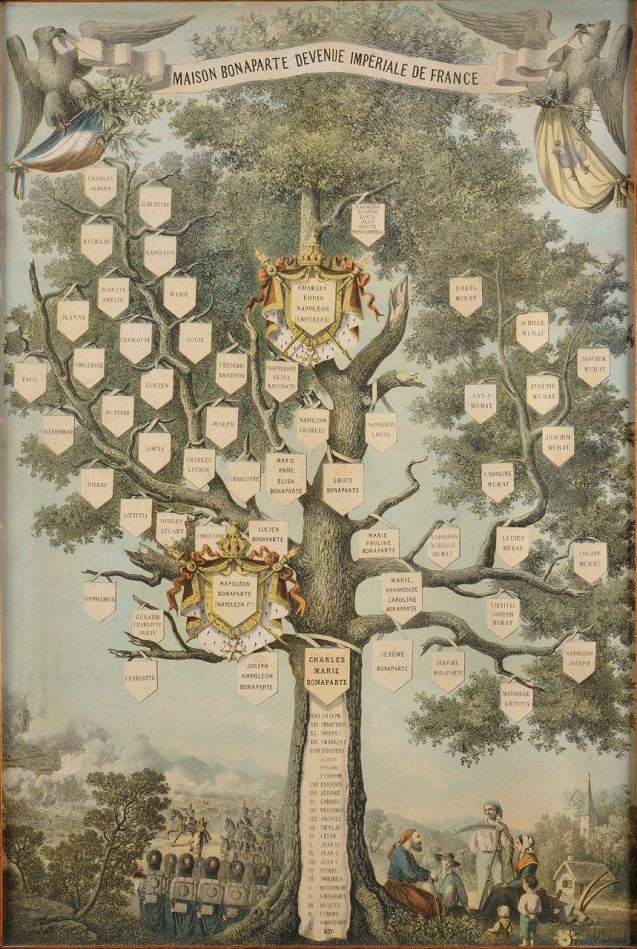The Napoleonic constitutions fixed the imperial succession as follows: Napoleon was to be succeeded by one of his sons or, failing that, by his brothers Joseph then Louis, followed by their children. During the Second Empire, the descendants of Jerome Bonaparte were added to those of the other two brothers. Napoleon’s only legitimate son – who became “Napoleon II” for a few hours at the time of the abdication in 1815 – died in 1832. Joseph, who only had daughters, died in 1844. Louis followed him to the grave two years later. His surviving son, Louis-Napoleon, became President of the Republic (1848-1852) then Emperor under the title Napoleon III, reigning from 1852 to 1870 and dying in exile in 1873.
From that moment on, with the establishment of a Republican polity in France, the order of succession became theoretical, though it did not prevent Bonapartists from claiming the throne for Napoleon III’s son, Napoleon-Eugène-Louis [otherwise known as “the Prince Imperial”]. The Prince, at that time in British uniform, was killed in Zululand in 1879. The succession thus passed to the Jerome branch of the family, namely Jerome’s grandson, Victor. When Victor died in 1926, his son Louis was next in line, becoming head of the Imperial Household and bearing the title Prince Napoleon, until his death in 1997.
At the beginning of the Second World War, Louis (who was at that time living in exile owing to the law of exile imposed on the families that had ruled France) dissolved the Bonapartist associations in order to prevent them being exploited by the occupied forces or the Vichy regime. He then joined the French Foreign Legion under an adopted name because the government refused to let him serve. After the defeat of 1940, he participated in the Resistance and ended the war in the service of the French forces, winning several decorations and being mentioned in dispatches for his actions. This patriotic behaviour was a decisive argument in the repeal of the exile law in 1950.
In accordance with Prince Louis’s dynastic will, the title of “Prince Napoleon” has been held since 1997 by his grandson, Jean-Christophe, who was born in 1986. This discreet young man, who does not in any way make a claim to the Imperial crown, is still, symbolically speaking, the “head of the Imperial Household of France”. In this capacity, he is invited by the authorities of the French Republic to official events.
Thierry Lentz


